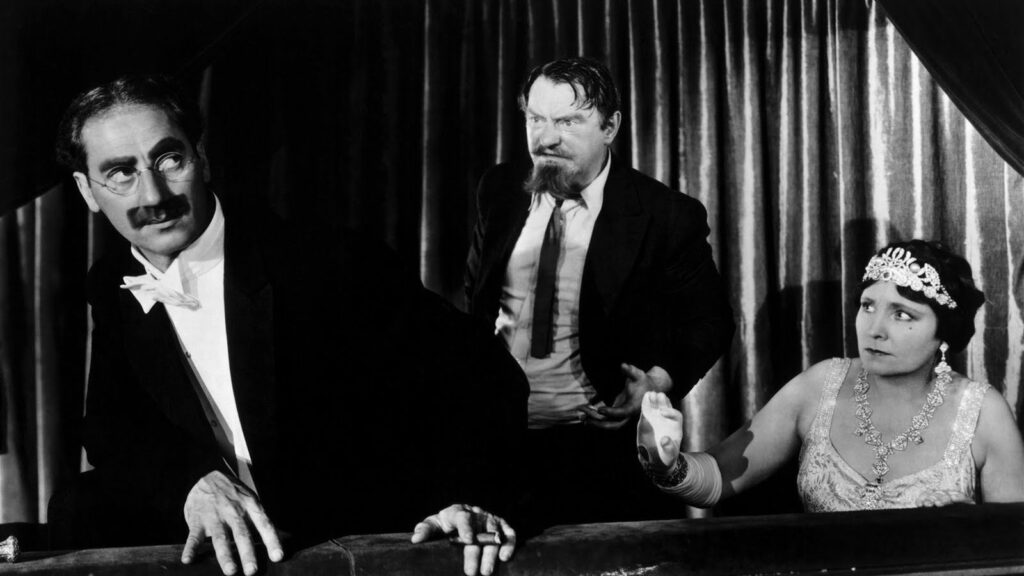
Say what you will about the Marx Brothers but there is no denying their immeasurable impact on comedy. Their film with director Leo McCarey, Duck Soup (1933), is a masterpiece of nihilistic madcap mayhem rendered kinetically. However the often overlooked A Night At The Opera (1935) is just as funny and influential even if, at first glance, it appears to be more traditional.
A Night At The Opera was as much an Irving Thalberg creation as it was the Marx Brothers’. Since it was the Brothers’ first film at MGM Thalberg felt that A Night At The Opera had to incorporate all of the spectacles that MGM was known for; the romance, the musical numbers, and the lavish sets. To do this Thalberg got George S. Kaufman (a veteran of several collaborations with the Marx Brothers) to co-write the script that would be directed by MGM regular Sam Wood. The result is a Marx Brothers film that folds their manic episodes and vignettes into a romantic narrative.
The “love story” involving Kitty Carlisle and Allan Jones adds a dramatic framework for the comedic shenanigans. Unlike their earlier films, this Marx Brothers film has more urgency and higher dramatic stakes. The result of Thalberg’s ingenuity in perfecting this structure established the formula for the Marx Brothers’ subsequent films at MGM as well as providing a blueprint for other comedic teams such as Abbott and Costello.
A Night At The Opera, in exchange for the musical numbers and romance, isn’t as funny as some of the Marx Brothers’ earlier films, but it does have some of their best bits. The state room sequence, the “sanity clause” routine, and the disappearing beds gag are all top notch Marx Brothers insanity. And of course the greatest foil in all of cinema, Margaret Dumont, is on hand to make Groucho’s bizarre maneuverings really sparkle.
What really makes A Night At The Opera the Marx Brothers’ last great movie is the climactic chase around the New York Opera House. This set piece, which lasts for nearly twenty minutes, enabled Groucho, Chico and Harpo ample opportunities to showcase their talents not just with ad libs but also for physical comedy. Matching their comedic timing perfectly is Sam Wood’s pacing of the love story and the finale number sung by Jones and Carlisle.
In recent years, and certainly after the latest Warner Archive release, A Night At The Opera has begun to be recognized as the only real contender with Duck Soup in the Brothers’ oeuvre. This film has always been my personal favorite so it’s somewhat vindicating. After all, who needs Zeppo if you’ve got Allan Jones?
